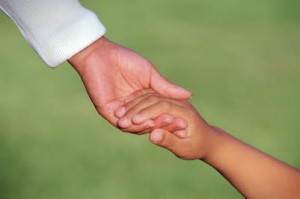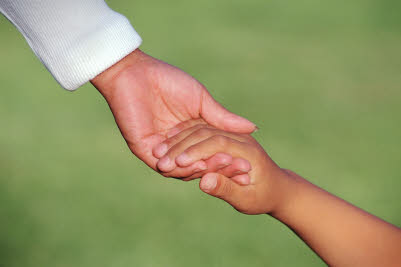by Priya S
[box]What does it mean to parent a differently-abled child? Priya S says it is about accepting reality, working hard to make the life of such a child meaningful, and above all showering lot of love. Read on.[/box]It is very true that one can never truly understand the urgency of an issue until its impact affects or concerns us directly. And in cases like disability and impairments, practical solutions and arrangements are best discussed when someone close has it, as the difficulties of the situation might not be fully comprehendible unless one actually goes through the ordeal with the affected person – for, at best one may sympathise or empathise with an offer of moral support, but the connection to the issue is very likely to be lacking otherwise. Nonetheless, these days, there is increased awareness towards these issues, and the sensitivity towards the differently-abled people is changing for the better. One important reason for this change in attitude is increased participation by the differently abled in the society, helping reduce some of the apprehensions and misinformation surrounding them. Another important source is the media, which has been responsible for positive dissemination of information, increasing public awareness.
Why am I talking about this? Well, my three-year-old son is physically challenged with a congenital deformity in his right leg. I am often asked about him and his condition and the questions that are posed to me range from whether I took any unprescribed medication to why I didn’t go for advance scans, to whether I am related to my spouse. What amuses people more is why my eight-year-old daughter is normal as opposed to her sibling.
 Parenting is no walk in the park. Most of you will agree with me when I say that taking decisions to do with children is extremely difficult, for there is no perfect method of raising them. What works for one child may not apply to another and it is imperative for us to alternate our role as good cop-bad cop for the child to understand the fragility or urgency of a situation. The equation gets even more complex when the child in question is differently abled.
Parenting is no walk in the park. Most of you will agree with me when I say that taking decisions to do with children is extremely difficult, for there is no perfect method of raising them. What works for one child may not apply to another and it is imperative for us to alternate our role as good cop-bad cop for the child to understand the fragility or urgency of a situation. The equation gets even more complex when the child in question is differently abled.
Disability can be of various forms: physical, sensory, mental, cognitive or intellectual, and the degree of support differently-abled people require may vary depending upon the severity of the situation. Emotional trauma, psychological concerns, physical, social and financial pressures are but the tip of the iceberg with regards to the multitude of situations that may arise in the context of raising such children. Needless to say, the way we deal with it goes a long way in bringing up these children. It is highly possible that with the right support, timely help and intervention, the child may be raised to have a confident personality and to act independently. Also, with support from family and friends, the stress of raising a differently-abled child can be reduced to a large extent.
The past three years have been one tremendous learning experience, a period that has seen enough heartbreaks and tears. However, it has also been a time when I have made conscious effort to break free from the web of despair and helplessness.
I wish to share a few concerns that arise when you take care of a differently-abled child and some ways you can overcome the issues in order to achieve the best when bringing up the child. The foremost struggle is to come to terms with the reality of having such a child. The question “Why me/Why my kid?” rears its ugly head every other unexpected moment and the challenge becomes even more difficult when the other kid in the family is normal. It’s important to push the questions away from your mind as self-pity is the greatest obstacle when dealing with the situation. Coping with the harsh truth is a necessity and the sooner you come to terms with it, the better. Isolating or denying this issue aggravates the situation.
How do you deal with it? It is easier said than done. Talking out aloud about this with family and friends helps mitigate the stress. The nature of disability being different in different cases, the parents should strive to attain a sense of balance in tackling the changed circumstances in their lives, as losing focus aggravates negativity all around. While the support of loved ones is truly a blessing, tackling the inner demons is a quest that has to be overcome individually. It takes time, but remember, nurturing anger or constantly cribbing about it is not going to help you, your child or your family. So, be aware of your strengths, the physical and financial support you can muster and work towards improving the situation.
Avoid the blame game
It is quite possible that caring for a differently-abled child brings about a distance between a husband and a wife. Dealing with an emotional partner, blame game and financial pressures of caring for the child may worsen the situation. What is imperative is to consider and mediate upon each other’s perspectives and then work on ironing the differences. Knowing and being aware that both the spouses are in it together goes a long way in avoiding the trap of blame game and criticism.
Involve the sibling
If there is a normal sibling at home, it is important that parents make that child understand the situation. It is likely that this child may face a lot of turmoil regarding his/her sibling’s disabilities and it is up to the parents to explain the challenges to the child. This is necessary because, in case the normal child is an older sibling, the time spent with him/her earlier as well as the nature of activities indulged with them change after the arrival of the differently-abled child. This may create animosity between the siblings and the only way out is to involve the normal child in taking care of the sibling. When the children are older and are more aware of reality, he/she may deal with the situation better.
Having said this, it is also important to take time out with the normal child and involve him/her in activities in which everyone can participate. Also, encourage the child to pursue activities on his/her own. Make sure to develop their hobbies into something fruitful. Besides taking their mind off the change in the situation, seeing them so involved in something could motivate their differently-abled sibling to shed their inhibitions. Of course it is possible that the normal child may occasionally develop a sense of embarrassment in public regarding the differently-abled sibling. Parents should understand that over time, these feelings may subside.
Focus on the differently-abled child
Now, here is the most important question. What can be done to make the differently-abled child self-sufficient and independent to a great extent? A whole lot of things, actually! A wide range of activities and special strategies are being developed and constantly upgraded to make the differently abled confident and self-reliant, keeping in mind the requirements and needs of the child. Interaction with other families going through the same challenges helps as this widens our perspective and brings to fore many options that may not have been thought of previously.
Above all, when the seeds of love are sown again and again, differently-abled children slowly start accepting their limitations and become acutely aware of the other prowess that’s inbred in them. All they require is to be constantly reassured that they are loved and cared for. It is in the best interest of the parents that they continuously work towards battling the uncertainties of future and move on. This is when you can start being a friend, mentor and a guide to your child.
Besides, many organisations have come up with unique ways of making a difference to these children. For instance, SPJ Sadhana School in Mumbai works tirelessly towards helping the mentally challenged, making them self-sufficient. Ummeed, a child development centre in Mumbai offers a complete range of clinical services for issues related to Cerebral Palsy, Autism, learning deficiency and attention deficit disorder. Ekansh Trust in Pune is working towards inclusion of people with disabilities in to the mainstream. Deen Dhayal Upadhyay Institute for the Physically Handicapped, based in Delhi, offers a variety of training and rehabilitation strategies to alleviate the sufferings of the differently abled. Similar organizations exist across different major cities in India. Tap the online world to remain abreast of the latest developments. What is imperative is to keep the mind open.
These days, the curiosity or insensitivity shown by people bothers me less, now that my son has slowly started walking with a Prosthetic Leg. With constant physiotherapy sessions and unconditional love, he is slowly shedding his inhibition and blossoming into a happy child. His impish smile and limitless curiosity, coupled with loads of naughtiness, has made me slowly ditch the past and move on, though on many occasions the enormity of the situation overwhelms me.
But I constantly reassure myself with Scott Hamilton’s quote –
“The only disability in life is a bad attitude.”
Priya S is a proud mother of two kids with varied interests, who believes in living life to the fullest.
[facebook]Share[/facebook] [retweet]Tweet[/retweet]






[…] Sources: sparkthemagazine.com, ncbi.nlm.nih.gov, journalijar.com […]